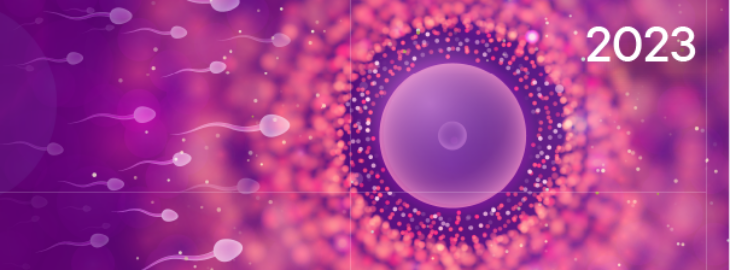The research also found that women treated for Hodgkin lymphoma may have to try for longer to become pregnant; however, the majority of women in the study who had tried to become pregnant were ultimately successful.
The research was presented by Dr Katja Drechsel from the Princess Máxima Centre for Paediatric Oncology, Utrecht, and Amsterdam UMC location VUmc (The Netherlands). She said: “Hodgkin lymphoma is a type of cancer that can affect children and young adults. Thanks to improvements in treatment, most people who are diagnosed with Hodgkin lymphoma now survive. However, we know that treatments such as chemo- and radiotherapy can lead to long-term side-effects, including lower fertility.”
The study included 84 women with an average age of around 30 who had been treated for Hodgkin lymphoma as children at an average age of around 13 years, as well as 798 women who had not been treated for Hodgkin lymphoma but volunteered to take part in the study.
Researchers asked the women whether they had children and how old they were when they became pregnant for the first time. They also tested the women for three markers of fertility in their blood (anti-Mullerian hormone, follicle stimulating hormone and inhibin B) and they used ultrasound to gauge the number of egg cells in the women’s ovaries (antral follicle count).
Among the women who had been treated for Hodgkin lymphomas in childhood, the levels of all three fertility markers in their blood were more likely to be abnormal compared to the women who had not been treated for Hodgkin lymphoma. The same was true for the results of the ultrasound scans, suggesting a lower number of egg cells remaining in the ovaries of the women treated for the disease.
The Hodgkin lymphoma survivors were also almost two and half times more likely to spend a year or longer trying before becoming pregnant for the first time.
The pregnancy rates and live birth rates were similar between the two groups; however, the women in the Hodgkin lymphoma group were two years younger on average when they had their first child (27 compared to 29 in the control group) and three years younger compared to the general Dutch population (average age 30).
Dr Drechsel explained: “Our results suggest that treatment for childhood Hodgkin lymphoma may have an impact on women’s fertility. In particular, they indicate that women’s fertility might decline at a younger age compared to other women. However, it’s encouraging to see that the women who have already chosen to start a family have been successful. On average they had their first child at a younger age, which may be because their doctors have spoken to them about the possible effects of their cancer treatment on fertility. We will need to follow this group for longer to see if they face greater difficulties becoming pregnant at older ages.
“These women were treated for cancer in the 1970s 80s and 90s. It’s important to note that treatment for childhood Hodgkin lymphoma has changed in recent years and the effects of current treatment schedules on fertility are likely to be less toxic.”
Dr Drechsel and her colleagues plan to follow the women to monitor their fertility in the longer term. They are also carrying out a larger prospective study (the fertility add-on study to the EuroNET-PHL-C2 trial) looking at signs of fertility in boys and girls treated according to the current European treatment protocol for Hodgkin lymphoma in five European countries.
The chair of ESHRE, Professor Carlos Calhaz-Jorge from the Northern Lisbon Hospital Centre and the Hospital de Santa Maria in Lisbon (Portugal), was not involved in this research. He said: “This study provides some reassurance for young women who have survived Hodgkin lymphoma as children. It shows that most of them who try for a baby do manage to become pregnant. However, the women in this study were relatively young and some of them thought it was too soon to start a family. This means it is too early to be sure about the long-term effects of treatment for this disease. More women need to be followed for a longer period of time.
“It’s important for women who have survived childhood cancer such as Hodgkin lymphoma to be aware that their treatment could have an impact on their fertility in the long term. Knowing this could help them choose to try for a baby at a younger age or take steps to preserve fertility, such as egg-freezing, to potentially help them to become pregnant later.”
[ENDS]
[1] Presentation no: O-083, “Ovarian reserve, Reproductive function and Pregnancy outcomes among Female survivors of childhood Hodgkin lymphoma: results from the DCOG LATER-VEVO Later study”, presented by Katja Drechsel, Session 25: Female fertility preservation: lessons learned so far, Auditorium 10-12, 16.00 hrs CEST, Monday 26 June 2023.
Notes for editors
According to the UK Academy of Medical Science’s press release labelling system, this is a non-peer reviewed observational study in people.
Funding: The VEVO-Later DCOG study was supported by the Dutch Cancer Society (Grant number: VU 2006-3622), and the Children Cancer Free Foundation (Grant Number: 20).

